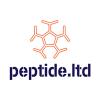Note: I already posted this in the Nootropic Stack Sub-forum but someone told me that it might be nice to share it on the Brain Health one too.
Hi everyone
You may not recognize me because I don't post much on Longecity, but I have lurked around it a lot over the last year.
Today I'd like to contribute some observations I made during the two months I experimented with nefiracetam this spring. I've found that there's not much hard personal data on the internets about the effects of this unusual and highly potent nootropic, so I hope that every little extra bit of info I can provide will help inform curious users' decisions.
Anyway, let's start with a bit of background:
I'm a 27 year-old male bicycle courier with a history of severe PI ADHD and a few smidgeons of OCD thrown in for good measure. Although I have an IQ in the 140+ range, I've often had trouble performing even the simplest of tasks that require working memory, such as counting. This has considerably limited my professional and academic success. But things are getting better. Over the last 8 years I've been learning to use mindfulness and daily doses of Ritalin to become at least semi-functional and my life improves every year that passes.
Now, as I began to work on my master's thesis last January, I knew I was going to have to acquire some new "tools" if I was going to succeed. My mental capacity at the time just wasn't sufficient to undertake such a complex project. So, I began to experiment with various nootropics, keeping a detailed spreadsheet with precise dosages and a composite assessment of how I felt/performed each day.
I started with noopept (greatly improves cycling, creativity, fluid intelligence, enhances appreciation of music and art, leaves me edgy),
continued with aniracetam (very, very, very good for linguistic abilities and socializing, sharpens senses, tolerance builds quickly),
dabbled in oxiracetam (speedy and euphoric but useless for being useful),
tinkered with phenylpiracetam (surprisingly didn't feel a thing),
supplemented with choline bitartrate (only helps if I have the 'racetam headache),
popped some piracetam (no effect on focus yet makes me cognitively smarter--but I don't really need more of that when I can't even count, do I?),
and tested some pramiracetam (brings intense focus at the expense of turning me slightly autistic).
While many of the above noots had strong positive effects, I still had this nagging desire to know if something even better was out there. And it was this creeping curiosity, in combination with the fact I was still struggling with my thesis, that led me to try nefiracetam despite reports on its toxicity in animals. Also, since I had liked aniracetam so much for its AMPA effects, I thought nef could provide similar benefits.
The Pros
From my first dose, I knew nefiracetam was wonder drug, even in small quantities (30 mg 3 x a day, I weigh 76kg). I would take it in a capsule and minutes later my senses would light up, almost as if I was waking up from a perpetual semi-conscious state. As one other poster on this forum similarly put it, I could barely believe that such a potent compound was legal. Even better, from a functional perspective, was that I wouldn't experience any psychedelia such as intense colors (à la noopept), excessively deep thoughts (piracetam), or irrational euphoria (oxiracetam). I simply felt very awake, aware, and present, which was just the right state for me to be productive. It precisely counteracted the effects of the ADHD inattentiveness.
In total, I used nefiracetam for about two months, or nearly until the end of my thesis project, which went on to win an award from the Swedish innovation agency (I even got to meet the next prime minister because of it). All-in-all, I think I can say fairly objectively that I performed quite well under the influence of nef, even if I can't quantify how much it contributed to my success. I doubt I would have been able to finish my thesis without it, let alone win an award. I'm also pleased to say that it shifted my thinking patterns and made me more methodical, an effect that persists even today (is this LTP related?)
But, as the title of this post indicates, nef has its dark side.
The Cons
Despite using very low dosages so as to avoid the complications noted during animal studies, nefiracetam certainly burdened me with some bad side-effects.
First of all, it does mess with your urinary tract. As much as I wanted to ignore it, nefiracetam made me...dribble. Shortly after I began dosing, I had a difficult time urinating without having some urine leak into my pants after I had finished. Unless I changed my underpants after every bathroom break I would smell like an incontinent bum. These symptoms bring to mind the Japanese studies showing renal toxicity in dogs. Fortunately, the problem vanished quite quickly after I stopped taking nef, so I'm hopeful that no long-term damage was done.
The second major problem that I had while taking nefiracetam was the surging dysphoria and overstimulation that took hold of me near the end of the second month of dosing. While it may be unfair to pin these symptoms on nefiracetam alone given the stress of working on a thesis in an isolated environment (Swedish winters aren't very social), I still thought they had a "chemical" sort of feel to them. Like the comedown you get in the aftermath of using illicit rave substances. It was these symptoms that made me stop taking nef, weeks before the hand-in date for my thesis. Unlike the dribbling, it took several months of beautiful Swedish summer before I began to feel like myself again.
To Conclude
I love neuroscience, but I am no neuroscientist. What I've written here is only anecdotal evidence on the potentials and pitfalls of nefiracetam use in one individual, me. Don't let my imperfect experience with it prevent you from experimenting with it too. If you do decide to try it, do so very cautiously and stop taking it at the slightest occurrence of side-effects.
Hopefully, with all the research that is going into compounds targeting AMPA receptors, something similar to nefiracetam (but without the side-effects) will come to market over the next 10 years. It just works.
Jon




















































